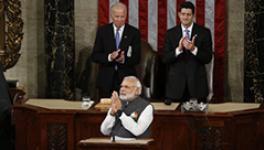Of Underwear Bombs and Smart Missiles
After Umar Abdulmutallab’s, the “underwear” bomber’s attack on the Amsterdam-Detroit flight, the US response has been to start installing full body scanners at airports and also officially identify 13 countries whose citizens would be now subjected to special security measures at airports. The Indian authorities, and presumably many other countries, would also now introduce full body scanners, held till now to be privacy invading. Apart from airport security measures, the US is also stepping up drone attacks and other “counter terrorism” operations – in other words targeted assassinations. With this, the Obama administration is proving to be not so different in practice from the earlier Bush administration, even though the rhetoric remains much more sophisticated. At least Obama can pronounce the name of the countries he bombs!
The problem with the current “war on terror” is that every time a strike or an attempted strike is made on the US – witness the shoe bomber or the recent underwear bomber-- the US seems to go into a war frenzy. The failed bomb attack on Northwest Flight 253 has ignited a new hysteria in the US of what the government needs to do to stop such attacks. This time, the explosives were hidden in underwear; what happens if they are secreted in a “body cavity”? Would then the airport security in the US subject every passenger to body cavity searches as well? The simple fact is that the attack failed and if the US is going to fight two wars in distant lands, some of it will come back to their homes. This does not seem to register on the American psyche at all. Contrast this with India, where we take for granted that a handful of terrorists would occasionally have some success – a bomb in a cinema or a bus – and the result should not be creating a police state to prevent such attacks. Perhaps we are protected by the relative inefficiency of our police, so do not look for absolute protection. Whatever it is, no country has imposed the kind of security regime on air passengers as the US, which has already converted air travel -- to and in US -- to a very onerous task.
Even before the underwear bomber’s attempt, air travel in the US was in shambles. The flights are routinely late, passengers miss connections and have to factor in at least a 2-3 hour delay in their travel. Atlanta, a busy hub, frequently shuts down on bad weather, dislocating hundreds of flights. Even the US administration has woken up to the woes of air passengers and has been talking tough to the US airlines. The point is that it is also the security measures that are adding to the delays in the airports. This is apart from what the long distance passengers from outside the US are subjected to. With now the additional measures the US seeks to put in place, we can fully expect that the US is a destination one visits only one is forced to. That is if you are willing to meet the airport security bare as mother nature has made you, curtsy full body scanners!
Troublesome as the airport security may be, far more disturbing is the global acquiescence with the US assassination program – both the use of drones and what are called in US lingo “black-ops”. Shorn of the gloss, they are nothing but state sanctioned assassination, that too with large civilian casualties. No house where an alleged terrorist is holed up, is free of civilians. Any such attack kills families of the people targeted and quite often many others who have no relation with the target. The question is not merely that of civilian causalities or what are called “collateral damage”. In what way are the US acts of attacking such targets any different from the actions of an Abdulmutallab? In what way are they any different from terror attacks they are seeking to combat?
The world has mostly accepted the drone attacks without questioning the right of any state to execute any accused without trial. It seems to accept that terrorism is a special kind of evil for which normal rules do not apply. Already, in Pakistan, drone attacks are becoming routine. One hears even otherwise liberal and progressive voices accepting the necessity of such attacks. The problem is that where will we put a stop? Will we accept drone attacks in Afghanistan and Pakistan only? What happens if it is extended as it is being done in Yemen? What about Somalia? Where will we draw the line – if drone attacks take place in India? Or in the UK?
Drone attacks have a different resonance in West Asia. Here, Israel routinely uses drone attacks to assassinate those it considers its enemies. Hamas leaders are routinely targeted as also others. Therefore, drone attacks by the US will be looked upon as a continuation of the same policies. Those who have technology and the resources, use drones. Those that do not, use lower forms of terror – underwear bombs being the latest.
The disjunction between what is legitimate for the US and what is illegitimate for others becomes even more sharp, if we look at the email correspondence between Major Nidal Hassan and Anwar al-Aulaqi, the Yemeni cleric, currently trageted for assassination. Aulaqi justifies the Fort Hood shooting that killed 14 US soldiers, who were being sent to Afghanistan. He seems to have given sanction to such an act to the “ethical” question that Major Hassan had asked in his email. No question, this was an act of terrorism and deserves condemnation and not justification as Aulaqi has done. But in what way is it different from the US aiding and supporting the attack on Aulaki, which killed 30 people, reportedly largely women and children?
The disturbing nature of the increased space age war that the US is conducting is that it sanitises war. People sitting in Langley, use a mouse to pinpoint a location and press a button to launch a missile that can kill hundreds. Those conducting this war do not see bodies or the blood that they spill. It is almost a video game, and presumably treated as such by the people conducting it. No casualties for those conducting the war. A “clean” war, with no consequences for those raining missiles and bombs. This is now the new military strategy of the US – how to minimise US casualties and maximise “enemy” damage. The ethical question of killing without trials, without any right to legal defence and “collateral damage” does not figure in this discourse. It is not surprising that on the Somali piracy, important voices in the US have called for attacking the pirates in their homes and villages. The war cry is kill them, kill their families and burn their villages down. In what way is this different from the medieval ideology of al Qaeda, which a supposedly “civilised” West is fighting?
The problem that the US and others refuse to recognise that a military battle against ideology that they are waging can only lead to a global disaster. More and more, their language and forms are indistinguishable from the terror groups they are fighting. If we look at it from West Asian perspective, it does appear to be a war on Islamic people if not Islam. The US may sanitise the war from their end – remote controlled smart missiles, hunkering down in fortified camps and using only armoured vehicles. What they forget is there are dead bodies on the other side. More and more countries get drawn into this war that the US is waging, more and more failed states are bound to follow. And as states break-up, more and more they provide a hinterland for al Qaeda type forces. That is why a policy of armed terror and remote missile attacks – from Iraq to Yemen – will only create a breeding ground for Islamic radicalism. Unless the US and its allies changes course, military misadventures – remote or otherwise – will only strengthen the forces they seek to combat. The price unfortunately will be paid by all, much more by people who are closer to the action.
Get the latest reports & analysis with people's perspective on Protests, movements & deep analytical videos, discussions of the current affairs in your Telegram app. Subscribe to NewsClick's Telegram channel & get Real-Time updates on stories, as they get published on our website.
























